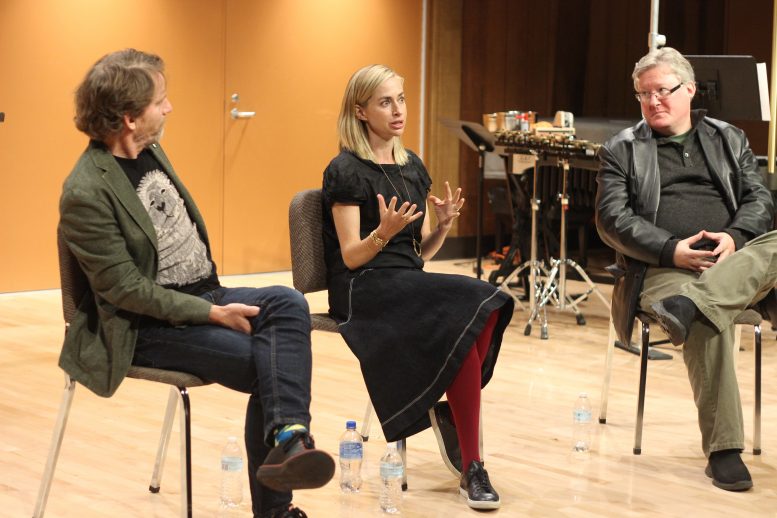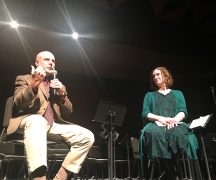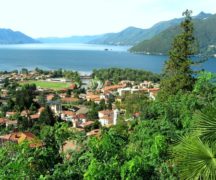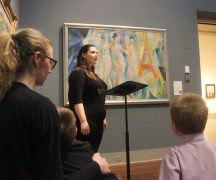By DAVID DUPONT
BG Independent News
Steve Mackey and Sarah Kirkland Snider came into contemporary music through back doors.
A rock musician in the mid-1970s Mackey was majoring in physics as his fall back plan if his rock star dream didn’t come true.
Growing up Snider studied cello, piano and attended choir camp in the summer “Music was my favorite thing to do,” she said. That included writing music which she never showed anyone. When she went to college she studied psychology and sociology and after graduating ended up working for the Center of Reproductive Justice.
To fulfill a requirement in college Mackey took a music history class. Thus exposed him to the world of classical music including Stravinsky’s “Rite of Spring,” which he called “his gateway drug” to new music.
At the time, music industry types who heard his band were impressed but said the music was “spacey, weird and undanceable.” Well, Stravinsky’s ballet music was also spacey, weird and famously difficult to dance to. Mackey was impressed that in the “Rite” and other classical pieces “all of human experience was distilled into a listening experience. “
With the rock band he was accompanying beer drinking, flirtation, and fending off requests for Doobie Brothers’ covers.
Living in New York, Snider was called on by friends to write music for theatrical productions. She was so involved she was being called on the carpet for missing work to compose.
She decided to make the transition into music. Since she had not majored in music at 24, she set about undertaking a four-year personal music course. At 29, she started studying composition at Yale.
Both now are recognized composers whose works are performed around the world.
Mackey and Snider, who are married, are on campus as the guest composers for the 38th New Music and Art Festival which continues through Saturday night. For a schedule of performances click.
Snyder and Mackey talked about their music and the contemporary music scene in an open conversation with Kurt Doles the director of the MidAmerican Center for Contemporary Music at BGSU.
Mackey said that when he and Snider met being older he was more established and already a Princeton professor. “We weren’t fighting for the same scraps.”
Sometimes, Mackey said, he wishes he could write music as beautiful as hers and she wishes she could write music as strange as his. “Beautiful is better,” he said.
The listen to each other’s work, and seek advice. “We egg each other on.”
“It’s really helpful,” Snider said. It’s “good psychological musical help.”
In the end, they urge each other to go for the most honest expression. “Lay it all out there,” Mackey said. “Be vulnerable. Nobody cares about some half-revealed truth.”
He said he sometimes tells his students that they don’t need composition lessons they need therapy to convince them to have confidence in their work and not worry about what he and others may think.
“You don’t want your music to live on my desk,” he said. “You want it to live on the stage.”
Mackey recalled getting a commission from the Chicago Symphony Orchestra. Deciding to trust his instincts, “I wrote this funky piece.” Then he was contacted by the orchestra and told that it had been programmed and that Daniel Barenboim would conduct it.
He knew that wasn’t a good match. “I could have written something more like Elliott Carter.” But the piece was done, and Barenboim did refuse to conduct it.
Instead guest conductor Dennis Russell Davies conducted “Eating Greens” and liked it and has performed it around the world.
The new music world is opening up. Snider said that when she was in school she had the sense that there was a certain way to write. Now, she said, “it’s a really exciting time with this pluralism of styles. You can write anything you want.”
Listeners are more open. “Ears are changing,” she said.
Mackey attributed it to the ease of finding music over the internet.
And film and TV music, which borrows heavily from contemporary music, means it “doesn’t sound as foreign,” she said.
“People go to concerts because there is new music,” Mackey said. “Being a composer is cool rather than being the parasites of culture,” he quipped.
“There’s a greater openness and interest among pop music to new music,” Snider said “This exchange and dialogue to me is very exciting” and leads to greater opportunities.
Mackey remembers when that wasn’t the case. If an orchestra played new music it was what his parents would call “squeaky gate music.”
If a string quartet played a composer’s piece and they didn’t like a passage they would literally throw that page away.
Now young musicians want to play new music, he said, and have far more exposure to t.
Still some orchestras, including, the Cleveland Orchestra, are reluctant to program new music. “I’m the enemy,” he said.
Snider said at these bastions there’s a fear that if a greater stylistic openness leads to performing works like hers that have pop influences the traditional repertoire will lose its place.
She disagrees. “The more people who come and hear more adventurous music, the more fans you’ll get for more adventurous music.”
Mackey recalled that after he replaced contemporary music icon Milton Babbitt on the faculty at Princeton he was invited to Juilliard, where Babbitt continued to teach, to give a presentation on his music. He played recordings of his work for electric guitar with string quartet and orchestra. Babbitt was heard to comment in a loud whisper: “What a shame! He used to be such a talented boy.”
Mackey and Babbitt’s paths had crossed years before in Bowling Green. Mackey attended the festival in its infancy 36 years ago when Babbitt was the guest composer.
Mackey was a young composer and had one of his pieces performed.
“Hopefully we’re doing it better,” Marilyn Shrude, BGSU professor of composition who ran the festival in those early years, called from the audience.
Mackey said yes. Both he and Snider were “amazed” about the quality of the performances of their works.
“Bowling Green seems like a very special place in that you are a your own a self-contained community,” Snider said. “There’s a really strong sense of community among musicians, and such a high level of performance and commitment to your work.”
The festival continues through Saturday night.
Tonight (Oct. 20) at 8 p.m. the Latitude 49 will perform three works by Snider and a piece by Mackey as well as pieces by Pulitzer Prize finalist Christopher Cerrone, Gabriella Smith, and Mark Kilstofte.
On Saturday at 8 p.m. the Bowling Green Philharmonia will also perform work by Snider and Mackey as well as other composers. That concert will open with the premiere by a piece for percussion by BGSU professor Christopher Dietz. Tickets for Saturday’s concert are $10.
Both concerts are in Kobacker Hall.





